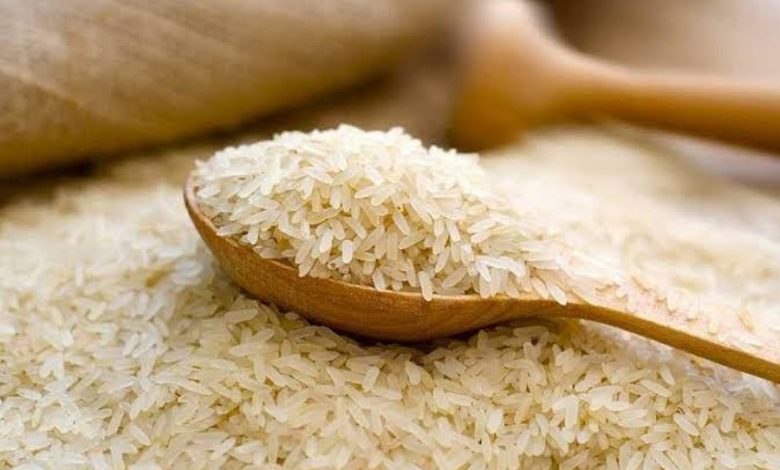Rice Price Spikes As FG, States’ Suppliers Mop Up Markets

Rice Price Spikes As FG, States’ Suppliers Mop Up Markets
The scramble for rice by suppliers recruited by the federal and state governments is partly responsible for the spike in the prices of the commodity, multiple sources have told Daily Trust.
Traders in markets in some states told our correspondents that requests by contractors had led to an increase in demand without corresponding supply from millers.
Recall that the National Economic Council (NEC) had on Thursday, August 17, said that the federal government approved N5 billion grant to be given to each of the 36 states of the federation for the procurement of grains as well as five trucks of rice to each state as palliatives to cushion the effect of fuel subsidy removal.
Most of the states had later acknowledged that they got the supplies; with some of them saying they have started using part of the N5 billion given to them to procure more grains, including rice, for onward distribution to people…………………….CONTINUE READING
The five trucks given to each state translates to 3,000 bags of 50 kg. This means that a total of 111, 000 bags of rice was shared to the 36 states of the federation and the FCT.
A contractor, who spoke to one of our correspondents, said he had an LPO from one of the states in the North to supply rice but was yet to meet up.
“The supplies have been mopped up in the markets,” he said. “I strongly feel that the federal government must explore ways to import the commodity from outside the country to bridge the gap, crash the price and avert hunger.
“They (federal government) shared roughly 3,000 bags to each of the states, how many people would benefit from it?,” he asked.
Abdullahi Ali, a family man in Kano, said he was not happy with the recent development.
“Those of us who have the money to buy the rice for our families have to pay more for a bag because it is not there,” he said.
A restaurateur in Wuse, Abuja, Janet Yusuf, said the cost of a plate of rice has increased. “We sell a plate of rice for N1, 700 now. It was N1, 200 two weeks ago,” she said.
A credible source in one of the federal government agencies told the Daily Trust, “The whole idea of the palliative by the federal government was to cushion the effect of the fuel subsidy, hunger and poor purchasing power of the people……………………..CONTINUE READING
“This was why five trucks of rice were approved for each state. However, it is not that the government had the rice in its strategic reserves, no! It contracted suppliers to get the produce from millers and retailers in markets.
“Unfortunately, as soon as the moves to get the rice commence, the price skyrocketed. As you can see, it increased by over N10, 000 per bag in the last 10 days,” the source said.
The source, who does not want to be named because of the sensitive nature of the matter, said the federal government was saddened that a noble cause, which ought to have produced a positive result, had led to an unprecedented rise in the price of rice.
Another source corroborated that the scarcity of rice in the market and the attendant high cost had a direct correlation with the high demand by both states and federal government.
“It is a serious problem indeed,” the source said.
“Rice, which is a staple food in Nigeria, is now beyond the reach of ordinary citizens and while there were other factors before the recent intervention by the government in the name of palliative, there are fears that any attempt by both the federal and state governments to contemplate buying other commodities in large quantities would lead to spike in the prices.
“There were plans to buy beans, garri and maize in large quantities in the market but there is corresponding fear that this will lead to a worse problem,” he said.
When contacted, the National Emergency Management Authority (NEMA), which is responsible for the release of rice to the states, declined comment on a request that its decision to buy the rice through contractors was responsible for the high price at retail shops.
Spokesman for the agency, Manzo Ezekiel, said he was not aware of any such development.
He said the distribution done by the agency was a Special National Economic Livelihood Emergency Intervention (SNELEI).
There was no comment on the matter from the presidential villa.
A source in the Presidency said the government patronized retailers to get rice, grains and other palliative items to assist households and spread prosperity for all.
The source, therefore, said the action was not meant to inflict hardship on the citizens but to encourage market women and traders who would make ends meet through the patronage.
“States could equally use grains as palliatives if rice was not enough. If there is no enough rice, the governors should distribute other food items. If there’s high demand, people will go for other things.”
‘No paddy to produce more rice after mop up’
Experts in the agricultural sector are blaming the current rise in the price of home grown rice to a number of factors, including inadequate paddy for the local millers as well as mopping of the produce by some government agents as well as Prime Anchors appointed by the CBN to give money and some inputs like seed, fertilisers and herbicides to evolve out growers but failed to do so.
An agriculturist, Mr Ige Idowu, said the inadequate paddy remains the major challenge as many local millers have stopped operations.
He said the federal government must find a solution to one circle farming system currently going on in the country.
A bag costs N47,500 in Kano
In Kano, the price of foreign rice (Thailand), which was sold at about N42,000 per bag in Singa Market last month now sells for N47,500 while at the Dawanau International Grains Market, a jumbo size bag of rice sold last month for N38,500 now sells for between N42,000 and N43,000.
See the Full Clip Here
Speaking about the development, a marketer at Dawanau, Anas Usama, said the hike in price is related to the absence of new stock from the farms.
“New stock is yet to arrive, so, whatever we are bringing to the market now is old stock.
“The condition in which the rice was obtained and the destination mainly contributes a lot as a determining factor for the price.”
On his part, a rice dealer at Singa Market, Basiru Dauda linked the development to the recent palliative distribution and the dollar rate.
“The palliative issue has contributed a lot. Secondly, there is much stock hidden in warehouses by businessmen who normally keep it until the price hits the roof. Now, they are taking advantage of that”.
Borno
In Borno, when our correspondent visited the Bulunkutu Market in Maiduguri, a 100kg of local rice was N85, 000 while 50kg of rice was sold at N47,000.
A trader in the market, Malam Abubakar, said in the last two to three months, a 100kg bag of local rice was selling at N58, 000 while the 50kg was less than N28, 000.
However, most traders interviewed in the market attributed the hike to massive purchase for palliatives and the scarcity of paddy.
One of them who gave his name as Babagana, said, “Most of the local processing industries in Borno and Taraba have closed down due to shortage of paddy and cost of production.
“Before now, most of the traders in Maiduguri relied on Zabarmari rice, but the paddy scarcity had affected tens of local processors. We now have to bring in from markets outside Maiduguri. So that’s seriously affecting the cost,” he said.
Plateau
In Jos, the capital of Plateau State, a bag of 50 kg of foreign rice is sold at N50, 000 while Nigerian rice is sold at N47, 000.
According to traders at the popular Yankwalli Market, the price of the product is increasing because the product is not sufficient in the market and there is high demand by contractors.
Isa Ibrahim, a trader explained that, “The product is sold at 50, 000 because we also bought it at a high price. The price could be changed anytime depending on the situation of the market. Some people attribute the development to the shortage of the products. Two weeks back, the price was N43,000 per bag.”
Yalo Ibrahim, another trader said the price of the products has gone higher in the market because of the restrictions on the importation of the product and the scarcity in the market due to high demand in the last two weeks.
Benue
In Makurdi, the price of rice has also gone up in many markets in the past few days.
Our correspondent reports that a 50kg bag of local rice now sold for between N46,000 and N48,000 as against the N40,000 the same size sold in the past few days.
The price of local rice had hovered between N36,000 and N40,000 in July, this year, after the price of petrol per litre went up.
A trader at the rice mill in Wadata, Mary Idoko, said that the price of rice has gone up by over N8,000 in the past few days.
She said the prices went up because producers hardly get paddies enough for production, adding that the hike was worrisome.
Emeka Kalu, a trader at the Modern Market, attributed the high cost of rice to both shortfall in supplies and the federal government’s distribution of palliative.
He said that the rumours about the government mopping up rice from the market for the distribution might be a contributory factor, but that the country lately had become a place where hike in food commodities no longer have bounds.
Another trader, Helen Terkuma, claimed that there was a shortfall in supplies as in the palliatives distribution by the federal government was gotten from the source of their supply.
Terkuma said the retailers are also taking advantage of the current economic situation in the country to hike rice prices.
Rivers
In Rivers State, a market survey carried out by our reporter in various markets in Port Harcourt such as Mile One Market, Creek Road Market, Eke Oyigbo Market and Mile Three Market showed that one bag of stone free local rice is sold between N50,000 and N52,000.
Also a bag of foreign rice is sold at N65, 000 while a bag of non stone local rice is sold at N40,000.
Similarly, a cup of stone free rice is sold at N250 while a cup of non stone free rice is sold at N200.
A trader at Mile one market, Keth Chiazu said the price went up in the last few days because of high demand.
In Abuja, the price of Nigerian grown rice has also gone up.
A market survey at Bwari, Dutse, Utako, Wuse markets shows that a 50kg bag is sold between N46, 000 and N50, 000 depending on the brand and the market.
A retailer at the market attributed the high cost to the increase in the factory price occasioned by inadequate paddy.





